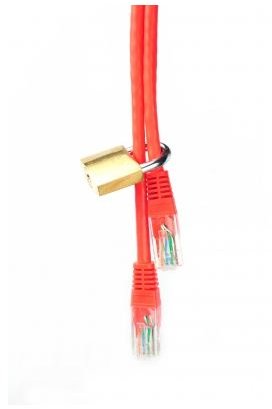A Guide to Network Security for the Small Business
The nature of threats that abound in cyberspace remains the same for both big businesses and small businesses, but the nature and approach to network security varies, depending on the size of the organization.
Hackers seek to make unauthorized use to steal data or cause system downtime. Other cyber criminals try to make unauthorized entry to steal system resources for their botnet empires. Careless employees make unauthorized use of network resources for their own personal uses. There are many more such circumstances. Regardless of the motives, failure to pay due attention to network security can cause significant damages to the company, including loss of revenue, business opportunities, reputation and credibility.
This guide to network security for the small business focuses on providing all that a small business owner without the services of a full-fledged IT department needs to know regarding network security. The articles on offer lend clarity to the concept, make a strong case for paying adequate attention to security, increase awareness on the different ways in which the network security can be compromised, and discuss ways and best practices both to prevent such attacks and take remedial measures if the attacks do take place.

Learn the basics of network security. What is network security? Find examples of network security mechanisms such as firewalls, VPN and IDS, and understand how to secure your network.
Why Is Network Security Important?
Many organizations underestimate the importance of network security, not giving it the attention or resources it requires. Neglecting network security can have far-reaching implications such as breach of confidentiality, destruction or manipulation of sensitive data, loss of reputation and business, and more.
The Beginners Guide to E-Commerce Security
The underlying reasons for security breaches in e-commerce are issues related to software and hardware breaches as well as user mistakes. Many software developers fail to test properly the software for vulnerabilities, and hackers exploit such vulnerabilities. Out-of-sync hardware and careless user behavior such as downloading from unsafe sites, being careless with passwords, and so on also lead to security risks. Careful browsing habits, updating security patches, using SSL layer protocols, robust passwords, and installing state-of-the-art firewalls all improve security and mitigate the risks associated with e-commerce.
Guide to Network Security for Small Businesses
The major network security risks facing small businesses are spam email, viruses, worms, Trojans, spyware, and zero-day attacks. Such attacks lead to not just loss of revenue and lost productivity, but also loss of reputation and possible damaging litigation. Adopting the best practices related to network safety and techniques such as collaboration and scalability allow small businesses to improve their network security.
Common Network Security Problems
Human errors are the single biggest cause of network security problems. Information extortion, acts of sabotage or vandalism, and employee theft rank as other big-time security problems. Contrary to popular impression, attacks such as worms, viruses, denial-of-service and macro-based attacks, though devastating, rank below such problems, for they can easily be contained.
Top 5 Network Security Threats for Small Businesses
Small businesses face grave security threats in the realm of their network infrastructure. The top five ominous current threats are software vulnerabilities combined with failure to update patches, spam and malicious emails, unregulated or unguarded web activity, SQL injections or forms accepting scripts, and lost portable devices.
Possible Network Security Breach Causes
A network, by its very nature, remains susceptible to various types of attacks. The most common types of attacks facing small businesses are compromised key attacks, data modification, denial-of-service attacks, eavesdropping or packet sniffing, email-based attacks, identity spoofing, man-in-the-middle attacks, password-based attacks, worms and Trojans.
Is Your Business at Risk of a Hacktivist Attack?
Cyber security is of late in the news for all the wrong reasons. Cyber criminals hack businesses and steal confidential information for fun, in retaliation, to prove a point, or to make profit. Hacktivists are responsible for many of the high-profile hacks in the recent past. What do such hacktivists target? Are small businesses at risk from such hacktivists? Whom do they target? How do you keep your small business off their radar?
Conduct an Audit to Secure Your Home Network
All network administrators need to undertake a security risk analysis audit, to ensure confidentiality, integrity and availability of the network. The audit makes a risk assessment, identifies vulnerabilities and threats such as Trojans, malware infections and phishing, assesses the state of the software and systems, monitors patch management, reviews the protections in place, and more
Securing the network requires many considerations. Consider the sensitivity of the information stored, processed, or passing through the network, pay special attention to information accessed remotely and from public systems–preferably segregating such attempts from the internal networks–put effective safeguards in place for wireless access, encrypt when appropriate, set up WLAN, VPN, and SSL protocols, and wherever possible segment the network to contain any damages.
Audit Checklist: How Tight Is Your IT Security?
An IT security audit is a routine feature in any organization. Such audits become effective when it is the result of a clear policy document and done undertaken with the support of a strong leadership who takes a proactive interest in the audit findings. The audit, when properly done, reduces liability, downtime, loss of business and embarrassment that may arise as a result of an IT-related security issue.
Adding VPN to Your Small Business Security Strategy
Setting up a small business virtual private network (VPN) sends out a strong message of commitment to customer privacy and also helps the business comply with a growing list of laws and regulations concerning data security. VPNs are also an indispensable security tool for mobile professionals who work with sensitive information.
How to Defend Your Passwords From Brute Force and Dictionary Attacks
One common way hackers attack is by stealing passwords. With passwords, the hackers can gain entry through the front door, and even the best of perimeter protection such as firewalls cannot ward off attacks. Increasing password length, refraining from using personal information, and including special symbols make the work of the hacker that much harder.
What to Do When Cyber Criminals Invade Your Customer’s Private and Confidential Data
For all the awareness and safety measures in place, breaches do occur. What to do when such nightmares come to pass? Do not panic. Shut down the network to prevent further intrusions and data loss. Then get the help of forensics specialists to collect evidence of the breach. Before restoring the network, conduct a thorough audit of the network and resources to identify how the breach occurred and note other vulnerabilities to prevent recurrence. Notify the appropriate vendors if the breach happened owing to vulnerabilities in such software. If required, invest in securing the network by additional perimeter fencing, and adopt policies and controls that are more stringent. Do not neglect to file a formal complaint, and report the crime, or file lawsuits for damages as required.
Protect Your Business From Cyber Threats With These 10 Tips
All businesses face threats from cyber criminals. Adopting some time-tested best practices such as benchmarking companies with proven security set-ups, securing endpoints, using web filtering, using firewalls, deploying encryption and digital certificates when transmitting data, having a robust password policy, making employees aware of safe browsing habits, and having a disaster recovery plan provide effective safeguards against such threats.
A guide to network security for the small business is incomplete without the mention of security. The best software depends on the specific user requirements and the state of the system. The Bright Hub buyers guide to secure software helps you to make the right choice of software and helps you secure a good deal.
References
-
Image Credit:
